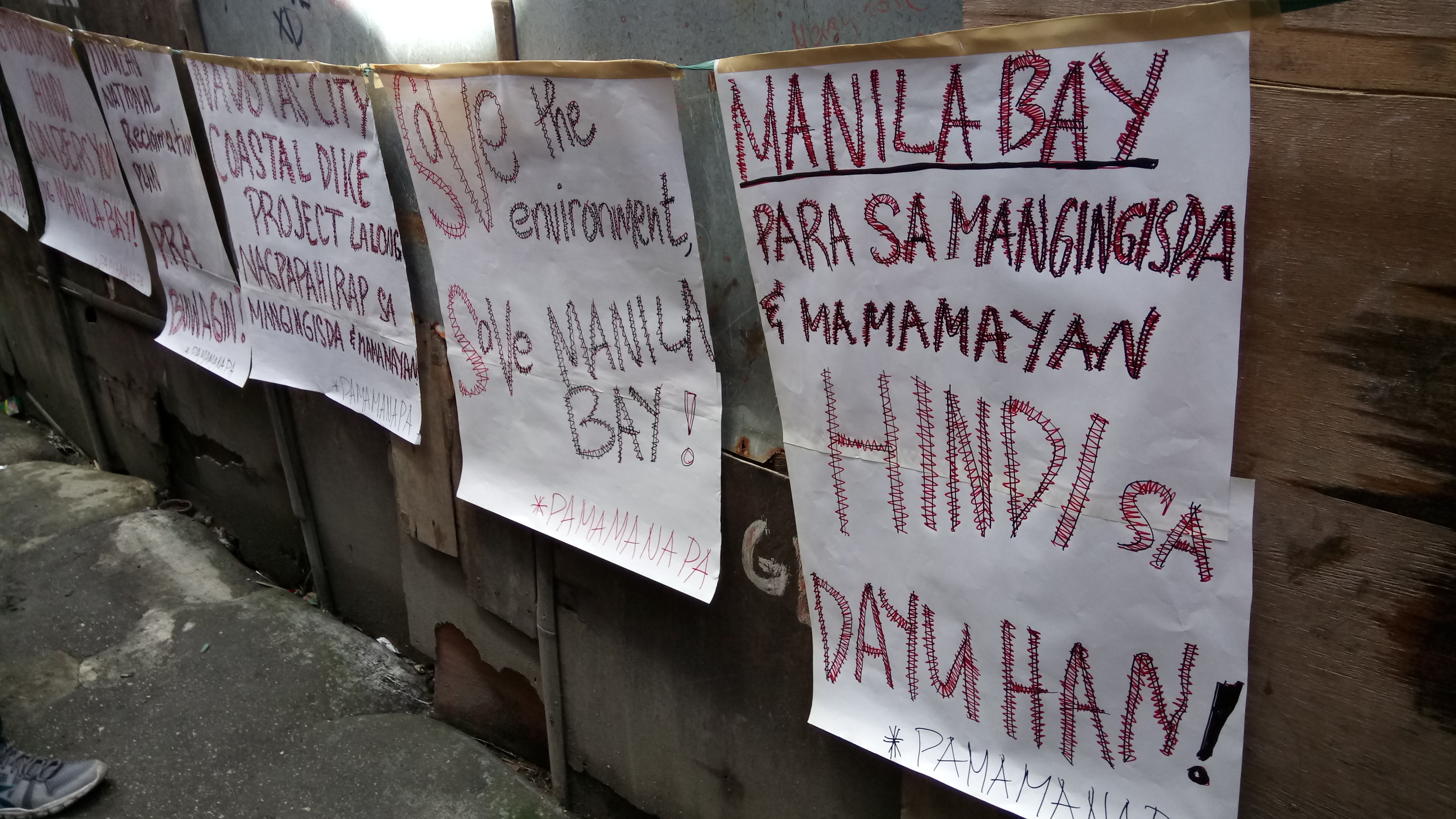Fisherfolk wants wider coverage of SC’s Manila Bay mandamus ruling
Manila, Philippines – The national alliance of fisherfolk Pambansang Lakas ng Kilusang Mamamalakaya ng Pilipinas (PAMALAKAYA-Pilipinas) urges the Department of Environment and Natural Resources (DENR) to raise to the Supreme Court (SC) to broaden the coverage of its continuing mandamus order in Manila Bay and not to use the Higher Court’s order to wipe out fishing communities and poor settlers along the gulf.
The SC on December 18, 2008 ordered a writ of mandamus to 14 government agencies to clean up, rehabilitate, and preserve Manila Bay, and restore and maintain its waters to SB level (Class B sea waters per Water Classification Tables of the DENR) to make it fit for swimming, skin diving, and other forms of contact recreation. DENR as the lead of the 14 mandamus agencies was directed to fully implement its Operational Plan for the Manila Bay Coastal Strategy (OPMBCS) for the conservation and rehabilitation of Manila Bay. DENR Secretary Roy Cimatu last June instructed the Manila Bay Coordinating Office (MBCO) and his officials to fast track the implementation of the SC ruling.
In a statement, PAMALAKAYA said the rehabilitation and total clean-up of Manila Bay is long overdue. In effect, small fishers for decades endures the trend of fish-catch depletion from 10-15 kilos average fish catch per day down to 2-5 kilos of average catch on a daily basis.
“We support the objective of the Honorable Court’s mandamus to rehabilitate and preserve Manila Bay in the context of it will order commercial and industrial establishments to regulate its dumping of chemical and toxic wastes on Manila Bay which comprise 75% of its pollution. The goal of the mandamus to maintain Manila Bay to SB level should not only to make its waters fit for swimming and recreational use, but moreover to restore its abundant marine and fish species for the livelihood of small-fisherfolk therein,” Fernando Hicap, PAMALAKAYA Chairperson said in a statement.
The fisherfolk group claims almost 60% of pollution entering Manila Bay comes from Pasig River, and 80% of pollution of the country’s major river system comes from industries and commercial establishments in Metro Manila, while the remaining 15% of the pollution comes from Pampanga River which is surrounded by big and small polluting factories.
The group laments how past and present administrations have been using the SC’s mandamus as a cloak to justify the demolition of fishing communities and even their small fish cages (baklad) that serve as their source of livelihood.
“We affirm that the fisherfolk and our small fishing structures are not the source of pollution and contamination of the bay. Manila Bay is the source of our livelihood and our fishing activities only involve passive fishing, therefore not destructive to the environment,” Hicap asserted.
PAMALAKAYA said the rampant reclamation and conversion activities since Marcos dictatorship have shrank the mangrove areas of the bay from 54,000 hectares to 2,000 hectares in 1990, and down to 794 hectares in 1995. More than 20,000 hectares of Manila Bay have already been reclaimed over the last 40-50 years to give way to special economic zones in Bataan and Cavite, and the commercial establishments in Roxas Boulevard in Pasay City. Now the Philippine Reclamation Authority (PRA) aims to reclaim another 40,000 hectares of Manila Bay until the year 2040.
“The continuing mandamus should look at the massive reclamation and conversion of public lands and coastal communities undertaken in the Manila Bay and include those in the activities that should be regulated to ensure total rehabilitation, clean-up, and conservation of the bay from further degradation. The DENR as the lead agency should direct all its co-petitioner agencies to demand the revision and widening of the coverage of the Supreme Court’s order towards genuine protection of Manila Bay and to save its almost 20 million populations from livelihood displacement,” ended Hicap. ###
